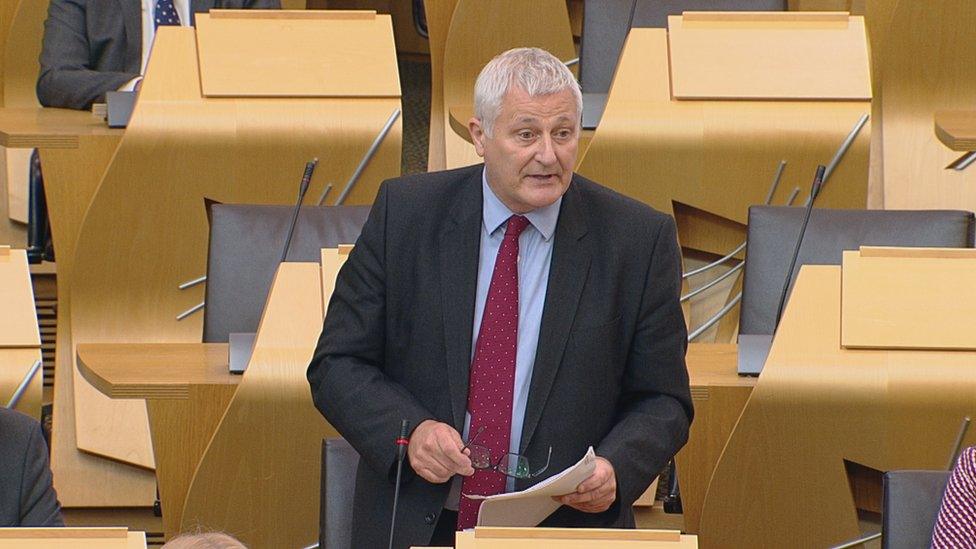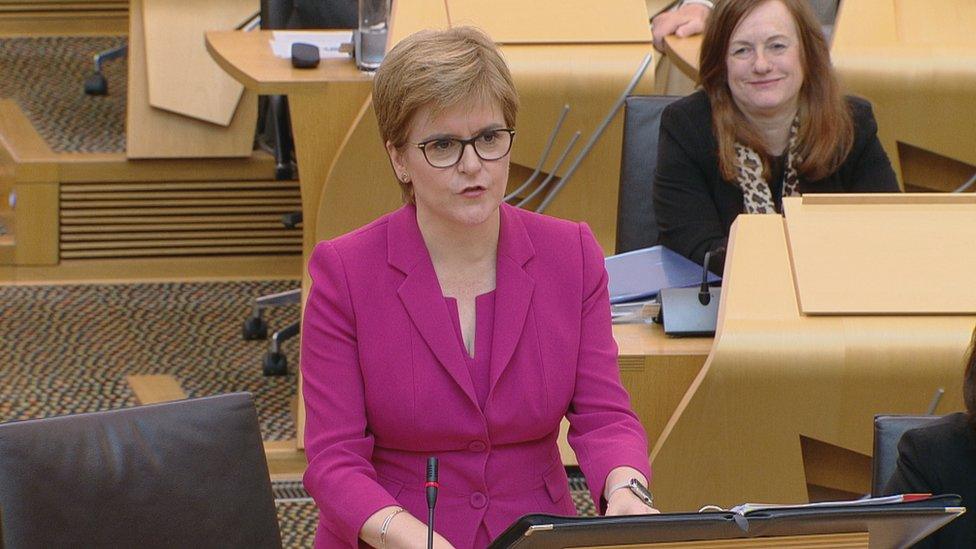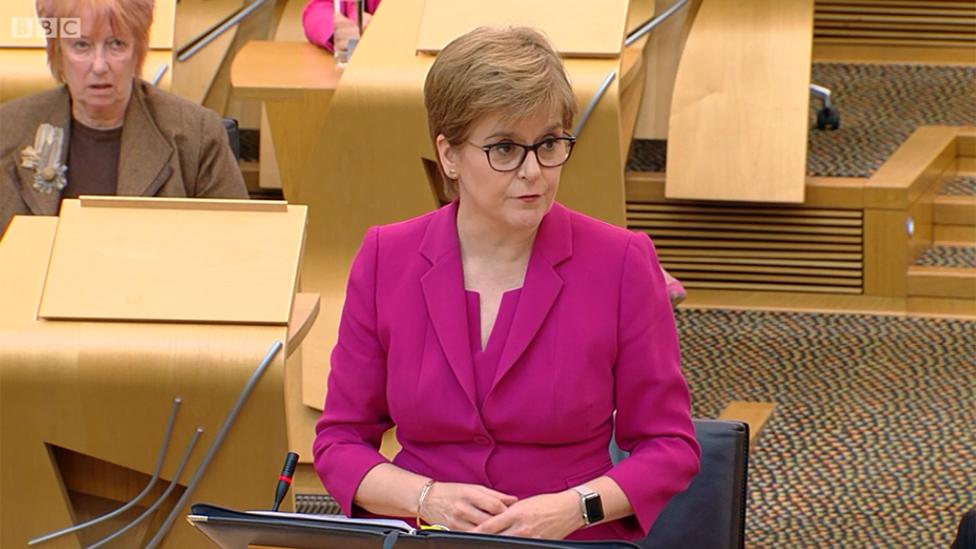'Worst case' or 'base scenario'? Words matter
- Published

The long hand of John Finnie landed on the wrong shoulder this time
Words matter, as politicians and pursuing journalists will attest. Such was amply demonstrated at Holyrood today.
John Finnie of the Greens rose magisterially, with evident intent (he does magisterial rather well, as a former senior copper).
The first minister, he said, had been found out breaking the law. Swiftly, he corrected his choice of language. The culprit, he assured the chamber, was the prime minister.
Not that Boris Johnson would agree with that either. You wouldn't catch him saying "it's a fair cop" - even to Mr Finnie who, I'm sure, was a decidedly fair cop.
But Mr Johnson chose his words carefully in responding to the Court of Session judgement that his advice to the Queen to prorogue Parliament was egregious and illegal.
Noting that the High Court in London had taken a contrary view, he said he was content to await the decisive verdict of the Supreme Court.
Others in Conservative and Downing Street ranks were less circumscribed in their language, going so far as to suggest that the Scottish lords were biased.
To be clear, such comments were roundly and comprehensively dismissed by party leaders, including Jackson Carlaw in Scotland.
And Nicola Sturgeon reckoned that words mattered in another context. She was referring to the Yellowhammer document, reluctantly published by UK ministers at the prompting of the Commons.
It deals with preparations for a no-deal Brexit. Ms Sturgeon reckoned it laid bare the horrors which would be visited upon the people of Scotland and the wider UK by such a development.

Nicola Sturgeon spotted a change in the wording of the Brexit preparation documents
En passant, Ms Sturgeon queried why the title appeared to have changed. The published version mentions "reasonable worst case" planning assumptions.
A similar document previously shared with the Scottish government describes it as a "base scenario".
According to the Scottish government, that is a core difference. "Worst case", by definition, presumes an extreme position, relatively unlikely to happen.
Base scenario, by contrast, might be said to represent a mean or average position.
Willie Rennie of the Liberal Democrats had posed the question to the FM in the first place. He said, bluntly, that the document had been doctored.
In response, the Scottish Secretary Alister Jack denied that there had been manipulation of the words.
He voiced firm optimism that any problems arising from no-deal would be mitigated by the planning undertaken by UK ministers.
While praising Scottish ministers for seeking to work with them, he suggested that they might be intent on pursuing their own agenda of "separation", as he described independence. Again, words matter.
- Published9 September 2019

- Published11 September 2019

